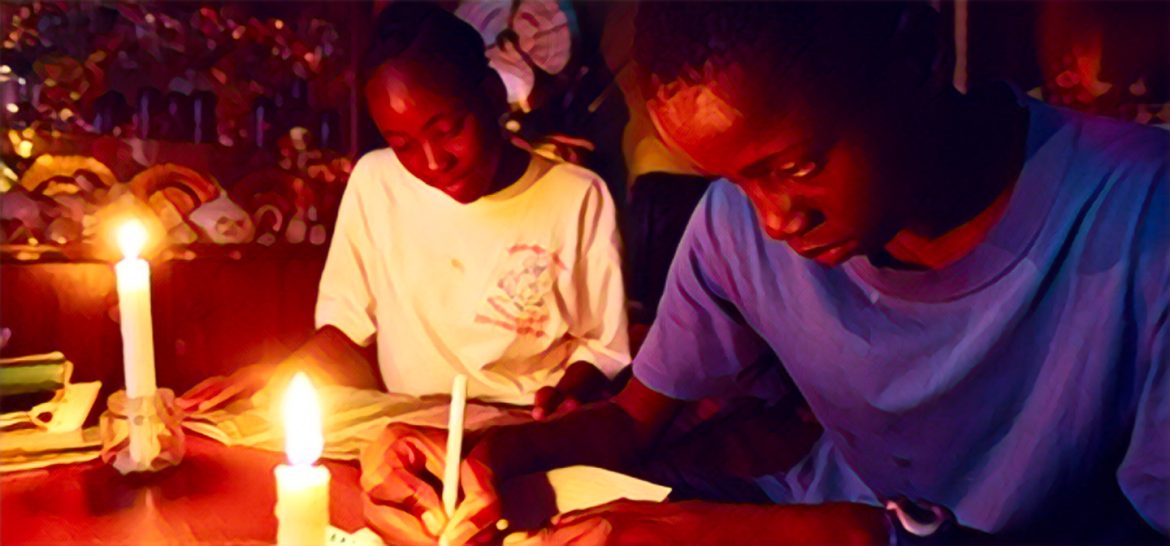KEY POINTS
- Over 600 million people in Africa lack access to electricity, with severe impacts on health and development.
- Energy poverty hinders education and economic growth, affecting schools, businesses, and agricultural output.
- Renewable energy solutions offer a promising path to reduce energy poverty across Africa.
Millions of families still rely on firewood and kerosene lamps for basic cooking and lighting needs in the villages of sub-Saharan Africa, where the sun sets early and the electrical grid frequently does not reach. This unfortunate fact is a component of a larger problem of energy poverty across the continent that hinders social progress, economic growth, and development.
The Scope of energy poverty in Africa
Energy poverty, defined as the lack of access to modern, reliable, and affordable energy services, remains one of the most pressing challenges for Africa. The International Energy Agency (IEA) estimates that over 600 million Africans do not have access to electricity. Also, more than a billion people cook using traditional biomass, like wood or charcoal, which has detrimental effects on both the environment and human health.
The situation is worse in Sub-Saharan Africa. According to a report released by Tracking SDG 7 in 2020, the number of people in Sub–Saharan Africa without access to electricity was 99 million in urban areas and 440 million in rural areas.
Even though national grid connections are more common in urban areas, the energy supply is frequently erratic, with power outages lasting several hours or even days.
Why energy poverty persists
Energy poverty in Africa has its roots in colonial legacy as well as current economic and policy issues. The majority of the energy infrastructure in place during the colonial era was built to facilitate resource extraction for export, depriving the local populace of consistent access to electricity. Due to financial difficulties and unstable economies, post-independence governments frequently made insufficient investments in rural electrification or upkeep of pre-existing infrastructure.
The cost of investing in energy infrastructure is a major obstacle. Extending electrical grids to remote locations is expensive, and many nations do not have the financial means to undertake such large-scale projects. According to a report by the International Energy Agency, Africa would need to invest over $190 billion a year to achieve universal access to electricity by 2030.
Inadequate government policies also play a role. While some African nations have implemented energy access initiatives, many are either devoid of comprehensive national energy policies or struggle with corruption and inefficiencies that impede development. Regulatory barriers also limit private sector involvement, further complicating efforts to expand energy access.
The consequences of energy poverty
Beyond simply not being able to flip on a light switch, energy poverty has many more detrimental repercussions. The absence of electricity has significant effects on one’s health, education, and employment prospects.
Cooking over open fires or with inefficient stoves puts millions of households at risk of indoor air pollution. The United Nations Environment Program estimates that 600,000 deaths in Africa are attributed to respiratory illnesses as a result of air pollution each year.
Energy poverty also has a direct negative impact on education. Basic educational tools are difficult to come by in schools without electricity, and students who live in dark homes sometimes find it impossible to study at night. Concern over digital exclusion is also growing as the world economy depends more and more on technology, further displacing individuals who lack access to energy.
Africa’s economy also suffers from energy poverty. Businesses find it difficult to run effectively in areas without consistent electricity, which restricts output and job creation. According to African Development Bank research, unstable electricity costs African nations between 2 percent and 4 percent of their GDP yearly. Small-scale businesses and agriculture, which depend on electricity to run machinery, refrigeration units, and irrigation systems also suffer greatly.
Finding Solutions
Despite the obstacles and challenges, promising solutions are emerging across the continent. Energy poverty might be greatly reduced by using renewable energy sources, especially solar electricity. Some of the best solar resources in the world are found in Africa, where nations like Kenya, Rwanda, and Ethiopia are making progress in bringing off-grid solar systems to rural areas.
Pay-as-you-go (PAYG) solar energy models have also gained popularity in Africa. These models let homeowners purchase solar power in tiny amounts over time. 19.3% of homes in Kenya now have access to reasonably priced off-grid solar energy systems thanks to businesses like M-KOPA Solar.
Other nations are looking into the possibilities of decentralised energy systems like micro- and mini-grids, which can supply electricity to isolated areas without requiring costly grid additions. Governments in West Africa are working together to develop regional power pools, enabling nations to share electricity resources and cut down costs.
The advancement of these solutions depends heavily on public-private partnerships. The International Finance Corporation (IFC) reports that although private sector investment in Africa’s energy sector has increased recently, additional assistance is still required. The African governments have a significant role to play in encouraging public-private partnerships. This can be done by creating favourable regulatory environments and providing incentives to attract investments in clean energy projects.
The path forward
Africa needs to adopt a comprehensive strategy that incorporates financial investment, legislative reform, and technology innovation to end energy poverty. Governments must prioritise electrification projects in rural areas and adopt open, progressive policies that promote public and private investment in renewable energy.
Looking ahead, universal energy access is not only a matter of economic necessity but also a moral obligation for Africa. The United Nations Sustainable Development Goals (SDGs), especially SDG 7, which asks for affordable, dependable, sustainable, and modern energy for everyone, cannot be achieved without addressing energy poverty.
Africa’s progress has been impeded by energy poverty for far too long. Now is the moment to ensure that every African gets access to the electricity they require to survive, through concerted and coordinated efforts.



